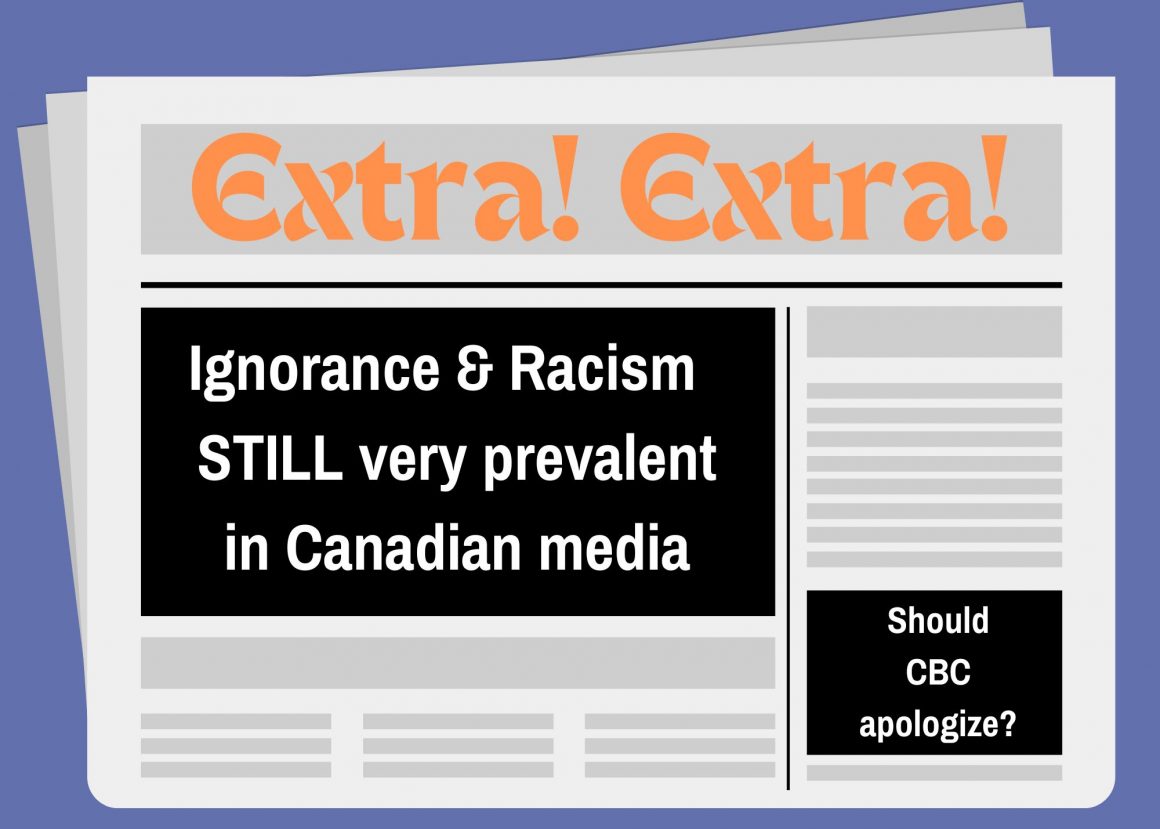
R-E-S-P-E-C-T: Find out what it means to the CBC
By Anabel Selemon, August 11 2022—
The CBC-Radio Canada has apologized for the use of the N-word by two of its broadcasters, but is pushing back against the Canadian Radio-television and Telecommunications Commission’s (CRTC) order to the CBC to apologize. In the midst of a conversation surrounding a petition calling for the firing of a professor at Concordia — for having quoted the Pierre Vallières book “The White N****** of America” — the broadcasters uttered the N-word repeatedly. This prompted Ricardo Lamour, a local Montréal artist and social worker, to successfully file a complaint, where the CRTC ordered an apology from the CBC, much to the radio’s dismay. While the unthoughtful use of the N-word on air warrants backlash, the CBC’s “sorry not sorry” response raises eyebrows at the level of thoughtfulness media broadcasters put into recognizing disrespectful language on air — particularly racial slurs.
Infamously referred to as the “filthiest, dirtiest, nastiest word in the English language” during the 1995 OJ Simpson trial, the N-word is fraught with a deep and horrific historical meaning. The word originates from the latin word niger — meaning, the colour black. While not initially a derogatory word, Africans that were forcibly removed from their homeland as apart of the slave trade were first referred to as negars in the 17th century when being shipped to Virginia. By the 19th century, the N-word had become a common slur — in reference to those of African descent being of an inferior social order — particularly when contrasted with those of European descent. As social norms shifted, the latter half of the 20th century saw the birth of the civil rights movement in the United States, rendering the N-word as a symbol of oppression.
Overtime, the word began to be reclaimed by Black people — specifically, African Americans — and particularly through artistry. One of the most notable examples was the hip-hop group N.W.A, who repopularized the word in the 1980s as a way of reclaiming its power and ruffling the feathers of polite society’s apathy and complacency towards the plight of African-Americans. With hip-hop and R&B sitting at the most popular music genre in the United States, the N-word can often be found in some of the most popular songs, bringing confusion as to who can sing along to the uncensored lyrics. It remains in many classic literature pieces such as “To Kill a Mockingbird,” “The Adventures of Huckleberry Finn” and Vallières’s “The White N****** of America”, prompting some schools to avoid the books in a classroom setting altogether and sparking debate as to whether it is appropriate to read these words aloud in the classroom.
This predicament made its way over to Canada in 2020 when students at Concordia circulated an online petition demanding the firing of a white professor over the use of the N-word — in reference to Vallières’ book, which seeks to address the plight of Canada’s Québécois. While this professor later apologized, a discussion over this petition between two white CBC broadcasters included the N-word being used at multiple points. The CRTC ordered the CBC to apologize in writing for using the N-word on air, claiming that Radio-Canada “did not implement all the necessary measures to mitigate the impact of the N-word on its audience.” The CRTC’s orders angered many journalists, as about 50 Radio-Canada personalities penned an open letter in La Presse claiming that this ruling promotes censorship and restricts journalistic freedom and independence.
The refusal by the CBC’s Radio-Canada to take full accountability — using free speech as the justification — sparks concerns over what could be deemed as carelessness over sensitive racialized topics. The N-word has a turbulent and destructive history, with its popularity in pop culture and prevalence in literature, it can be hard to understand why its use by non-Black people under any circumstance can be deemed as inappropriate. It can be easy to deduce that this is an attack on the right to free speech — which is so integral to the job of journalists, who should report stories for the truth that they are, without sugar-coating the unpleasant portions.
Rather than interpreting the order to apologize as another example of “cancel culture,” the point being made by the CBC is that not everyone who has uttered the N-word should be judged as racists or fired from their jobs, essentially banished by ruling social media mobs. Rather, it would be wise to consider all other aspects of our lives where we choose our words carefully out of respect for others. It is widely accepted that it is impolite to curse, particularly in front of authority figures, such as parents, teachers and employers. We manage to censor ourselves when singing along to songs or when discussing sensitive topics out of respect for the people around us. Is this an attack on free speech? Or simply an effort to signify civility? The CBC’s Radio Canada providing an apology, but simultaneously vocalizing their disapproval in being told to apologize, demonstrates total carelessness towards the gravity of the N-word and a lack of desire to show respect to those who were deemed less than human, using that word.
This article is a part of our Voices section.
